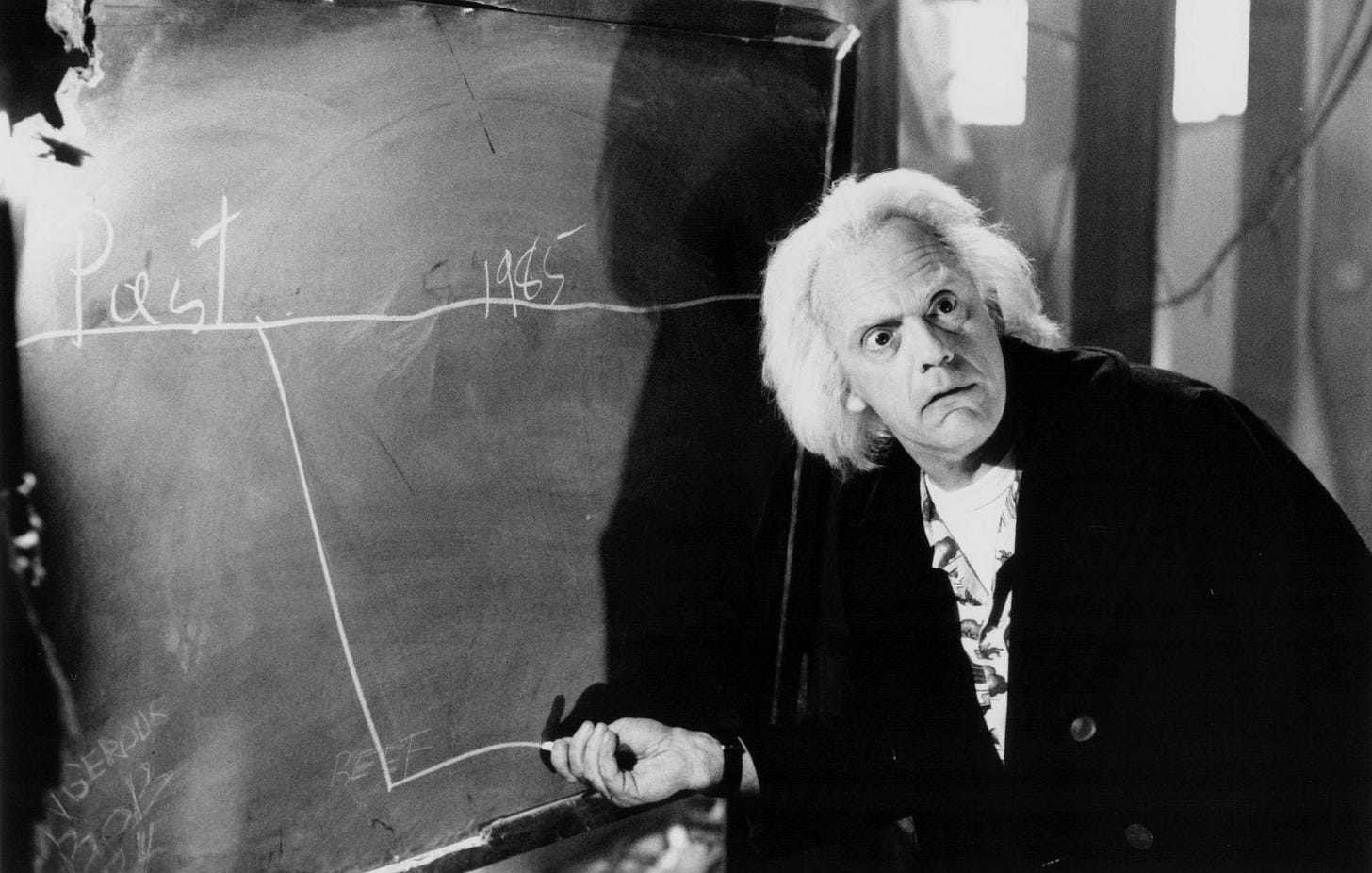University investigations don't get you back to the future
College presidents launch them to clear the air, but they usually have to clear it themselves
This week, Marc Tessier-Lavigne is ending his presidency of Stanford after the results of an investigation of errors in his lab from more than 20 years ago. Plenty has been written about that, and I have a piece in the LA Times with more detail out today and thoughts about the process of correcting errors, as the retractions of the papers (here and here) have just gone up. I’m hopeful that this is a time to rethink the punitive and confrontational way all of this is handled, as I wrote in the LA Times today and also here.
But the story has resonance with another piece out in the Chronicle of Higher Education about how college presidencies end. It turns out that when an investigation is launched, the delivery of the results often ends presidencies. This is in contrast to what is said when they are started, which is almost always that they’ll clear the air so that everyone can move on without any changes. Presidents saying things like they “welcome the investigation” are common.
Some of these investigations are about the presidents themselves, and the delivery of the results almost always leads to a resignation, even when the results aren’t that bad. Sometimes, the investigation is not directly about the president, such as the ongoing athletics investigation at Northwestern. Still, some of these indirect investigations have also led to the departure of presidents, including a sexual harassment investigation at the University of Rochester, or with me at the University of North Carolina. (Much has been written about what happened in Chapel Hill now more than ten years ago, and the best version is here.) Fortunately, I had a good adviser who told me to start looking for a job when the investigation was launched, but most of my counterparts are expecting the results to allow them to continue.
So, why in many of these cases where the presidents are largely (or completely) vindicated, do they still end up leaving? To understand this, let’s turn to Doc Brown in Back to the Future:
As many will remember, Marty had to go back to before time changed in order to restore the future. The same thing happens when a university launches an investigation. Whatever the matter is, it then becomes the vertical line that Doc is drawing. So the investigation begins, and the university starts doing something the public relations folks call “putting it on the credit card.” That is, saying, “we welcome the investigation, look forward to the results, and aren’t going to say anything else until it is done.” This is a great way to buy time (and maybe be able to work on a few other things), but the journalists aren’t going to stop digging up questions. If the president is clammed up and putting it on the credit card, they’re not answering the questions that come up in the meantime. So, the scandal is still evolving, but the investigation is only looking at what the questions were when the investigation started.
Presidents would be better off taking questions from tough reporters on the record the whole time this is happening, but the lawyers, PR folks, and trustees rarely want that. I did so after the fact, and Joe Nocera gave me a very fair treatment that was good for my career. (I was scared to talk to Joe, but the same smart adviser said, “you’re gonna $%$@ing talk to him.”)
When the report finally comes out, no one is happy. Because there’s no way to do an investigation and not find something, and there’s no way it answers all of the questions that came up during the process — especially while everyone was clammed up. So even if the initial questions come out relatively OK, so much bad karma has built up that the only way to get rid of it is for the president to cart it off. Since I ended up leaving for St. Louis, I used to say I was taking the bad karma, putting it in the back of my car, and driving it across the Mississippi River. That more or less worked.
In the indirect cases like mine, even if the president isn’t implicated or being investigated, they’re still managing a boiling cauldron and lots of mistakes get made along the way. It’s inevitable in these moments of stress. In direct investigations of the president like the Stanford case, lots of questions come up while the investigation is being done. Even though Tessier-Lavigne was largely exonerated by the report, he was right to step down.
It was the only way to get the DeLorean back to 88 miles an hour.




You did much to dispel the bad karma once you came to St. Louis. You are well loved and missed by your many colleagues and friends. Nice to see there can be fabulous second or third acts. ;)